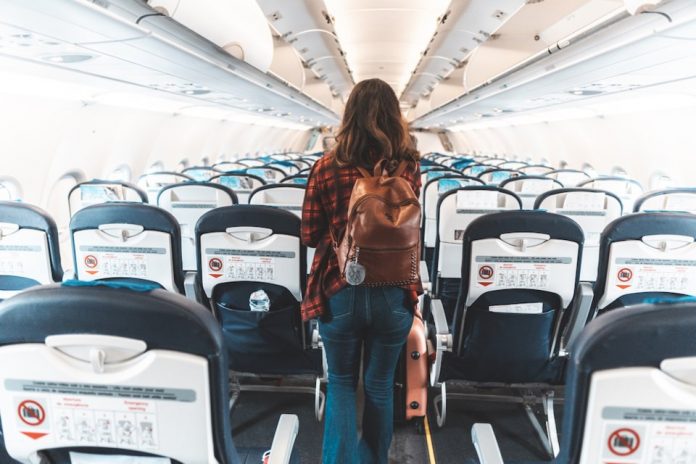Over a 10 day period the British Columbia Centre for Disease Control (BCCDC) counted nine more B.C. flights to its list of public COVID-19 exposures.
The public health agency on Sunday afternoon, Dec. 27 warned passengers who travelled aboard the following flights that they may have been exposed to the coronavirus earlier this month:
Dec. 14: Air Canada 114, Vancouver to Toronto (Affected rows 31-37)
Dec. 19: Air Canada 214, Vancouver to Calgary (Affected rows 20-26)
Dec. 19: Air Canada/Jazz 8622 , Vancouver to Winnipeg (Affected rows not reported)
Dec. 19: Air France 74, Paris to Vancouver (Affected rows not reported)
Dec. 20: Air Canada 971, Puerto Vallarta to Vancouver (Affected rows 15-21)
Dec. 22: Air Canada/Jazz 8352, Vancouver to Penticton (Affected rows 2-8)
Dec. 22: WestJet 725, Toronto to Vancouver (Affected rows 17-21)
Dec. 22: WestJet 3169, Edmonton to Vancouver (Affected rows 4-10)
Dec. 24: Air Canada 123, Toronto to Vancouver (Affected rows 27-30)
Sunday’s additions to the list come following the nine flights flagged for carrying COVID-19 that Vancouver is Awesome reported Dec. 24.
With the number of new COVID-19 cases remaining in the hundreds each day, B.C. provincial health officer Dr. Bonnie Henry implemented new orders last month instructing British Columbians to avoid any non-essential travel outside their home communities. Those orders have been extended until at least Jan. 8.
Your domestic flight has been identified for having COVID-19 on board. What next?
The BCCDC is encouraging travellers who recently arrived in B.C. to check the public health agency’s website for updates about flights identified for potential exposures. Passengers who flew aboard a domestic flight flagged for carrying a COVID-19 case are encouraged to self-monitor for symptoms for 14 days following their flight.
While self-monitoring for symptoms of the virus— which may include fever, cough, chills, sore throat, loss of sense of smell or taste and many more—individuals should take and record their temperature daily, and avoid taking fever-reducing medications like acetaminophen or ibuprofen, if possible, for the full 14 days. The average normal body temperature taken orally is about 37°C, according to the BCCDC.
Pre and Post-Travel Considerations
The Government of Canada has issued a global travel advisory strongly encouraging Canadians to avoid all travel outside of the country until further notice due to the coronavirus pandemic. “This advisory overrides other risk levels on this page, with the exception of any risk levels for countries or regions where we advise to avoid all travel,” it reads.
If you do have to travel for an essential purpose, there are several things to keep in mind before you fly.
First, any passengers who have travelled outside of Canada are required to self-isolate and self-monitor for symptoms for 14 days upon their arrival. As of Nov. 21, air travellers whose final destination is Canada are also required to submit their information electronically through ArriveCAN before boarding their flight. This includes travel and contact information, a quarantine plan (unless exempted under conditions set out in the Mandatory Isolation Order), and a COVID-19 symptom self-assessment.
Travellers must be ready to show their ArriveCAN receipt when seeking entry into Canada; a border services officer will verify that they have submitted their information digitally.
Travellers who do not submit the required information digitally before boarding their flight could be subject to enforcement action, which can range from verbal warnings to a $1,000 fine. However, exceptions will be made for those unable to submit documents electronically “due to personal circumstances, such as a disability or inadequate infrastructure.”
Any returning travellers who develop symptoms following their arrival in Canada should get tested for COVID-19. Individuals who test positive are required to self-isolate for a minimum of 14 days from their arrival date, or 10 days after onset of symptoms, whichever is longer.
































